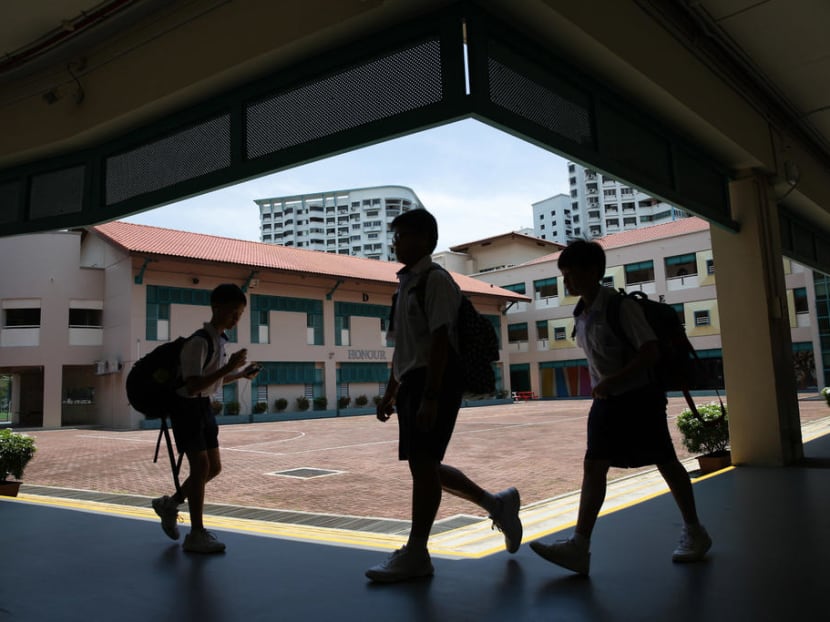Needy students to get cash for meals even if they don’t return to school during circuit breaker month
SINGAPORE — Students from primary and secondary schools who depend on the School Meals Programme will have cash credited to their school smartcards from Tuesday (April 14), even if they do not return to school during the circuit breaker period, Education Minister Ong Ye Kung said.

Education Minister Ong Ye Kung said that his ministry worried most about students from vulnerable backgrounds when schools closed and moved to full home-based learning.
SINGAPORE — Students from primary and secondary schools who depend on the School Meals Programme will have cash credited to their school smartcards from Tuesday (April 14), even if they do not return to school during the circuit breaker period, Education Minister Ong Ye Kung said.
In an effort to stem the spread of Covid-19, schools shifted to home-based learning on April 8. The move is expected to last until May 4, as part of heightened safe distancing measures islandwide.
In a Facebook post on Monday, Mr Ong said that each primary school student on the School Meals Programme — which subsidises school meals — will have S$60 credited to their smartcards “regardless of whether they return to school during full home-based learning”. Secondary school students on the programme will receive S$120 on their cards.
Students may use the cash in their smartcards to buy food at certain food courts, fast-food outlets and convenience stores.
Separately, the Community Foundation of Singapore, a non-profit organisation, will provide an extra S$20 to primary school students through the Sayang Sayang Fund, Mr Ong said.
The fund supports healthcare workers and vulnerable communities, such as isolated seniors and low-income families, affected by the Covid-19 pandemic.
Mr Ong said that his ministry worried most about students from vulnerable backgrounds when schools closed and moved to full home-based learning.
While many of these students still go to school for “home-based learning” under the supervision of teachers, others have not done so for various reasons and despite teachers’ efforts to reach out to them.
For these students, Mr Ong said the closure of schools was not just about losing a conducive learning environment. They also depend on schools for “something as basic as having their meals”.
This means that they would go hungry without the School Meals Programme, the minister said.
Mr Ong hoped more such students would decide to go to school, where they would be provided with meals.
He said: “It will be an uphill social battle. We are thankful to our teachers and community partners for their efforts.”











